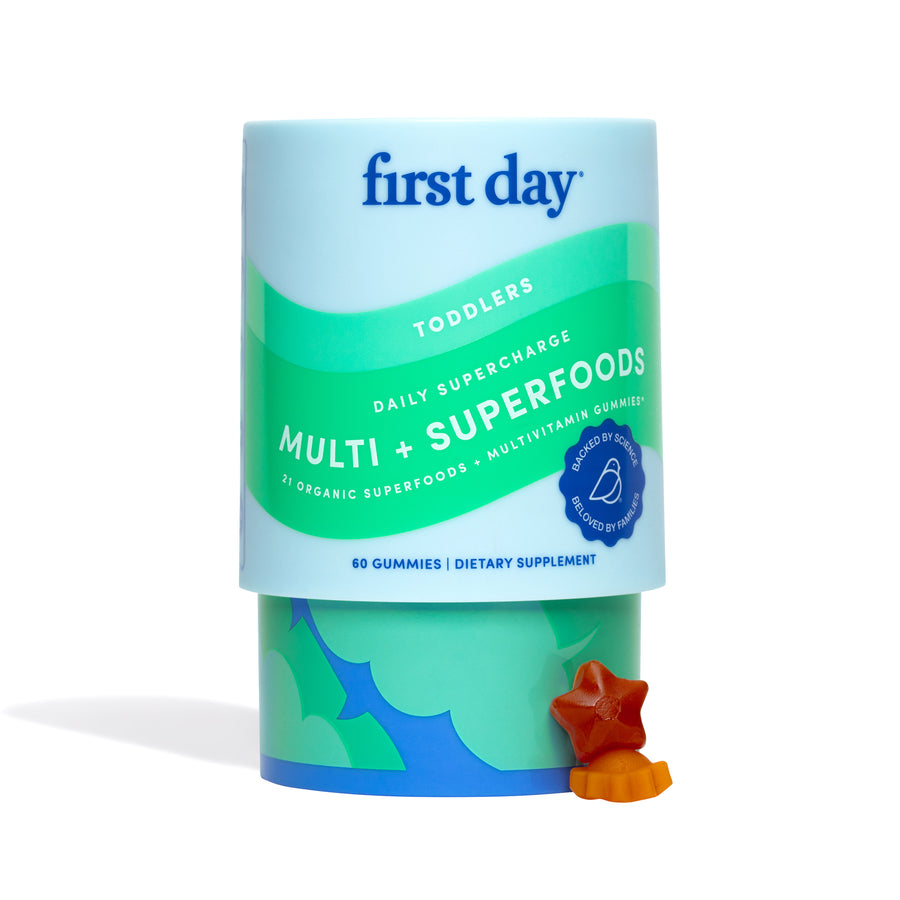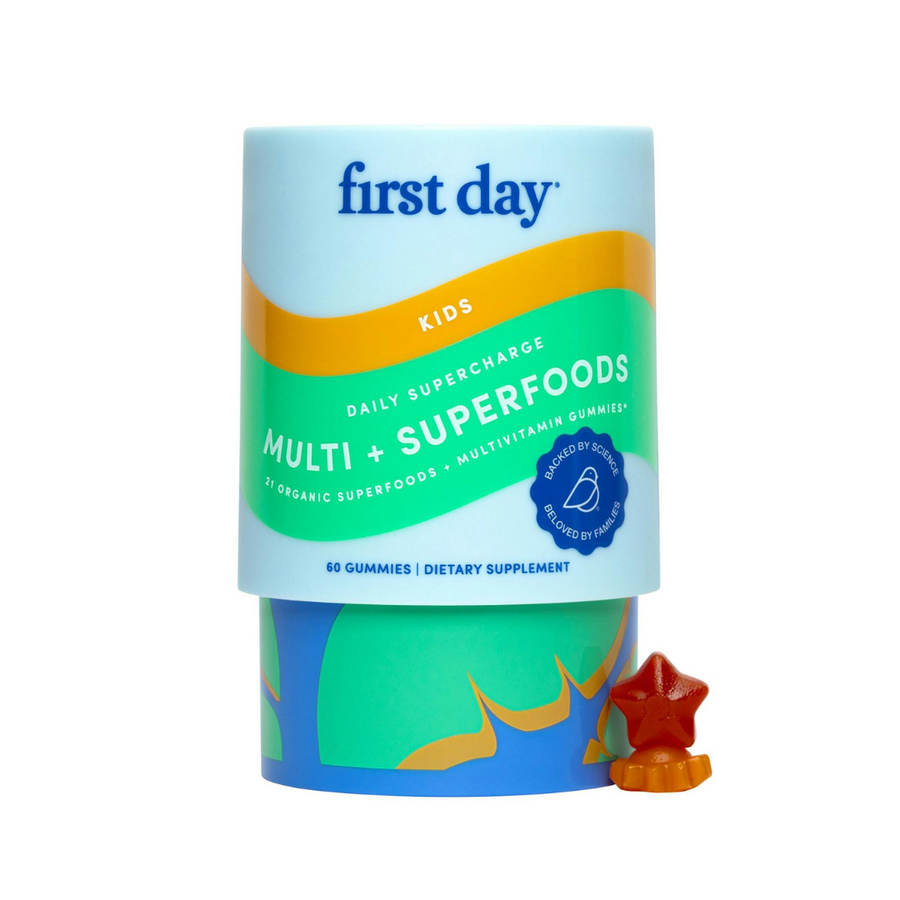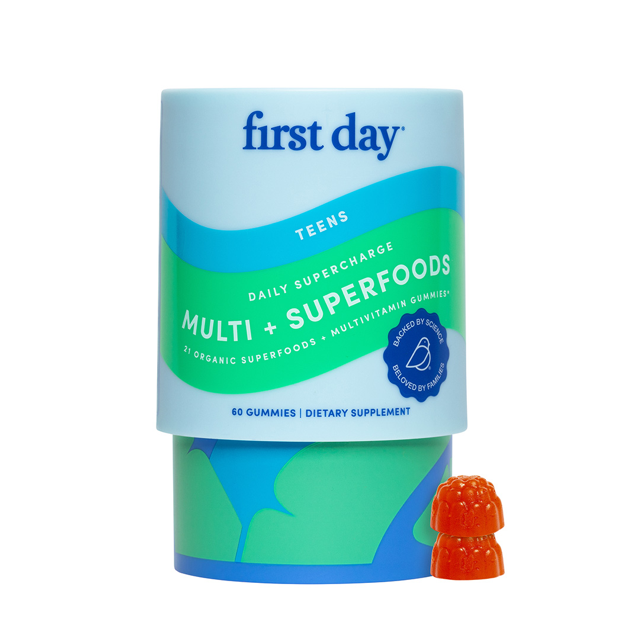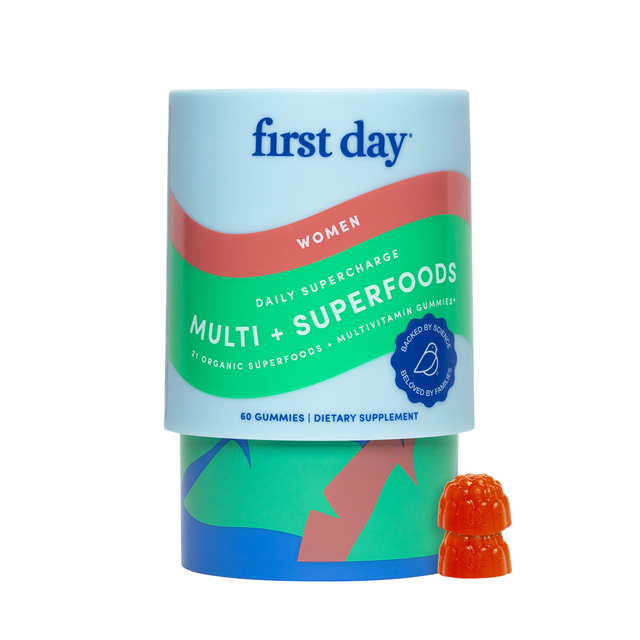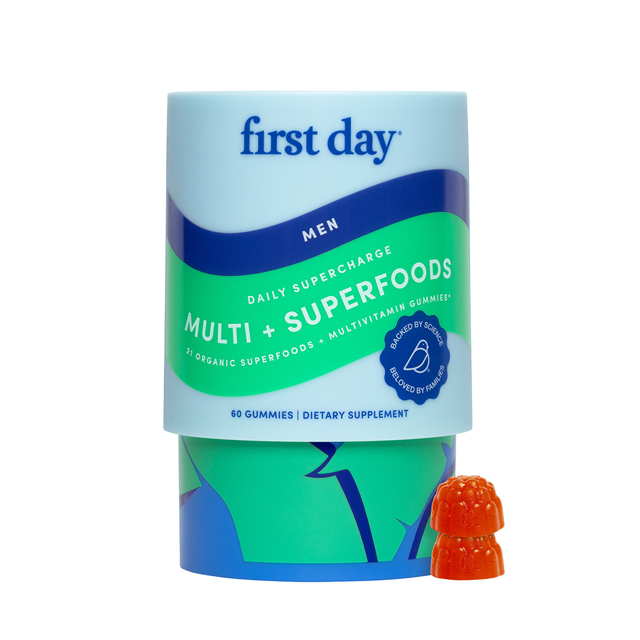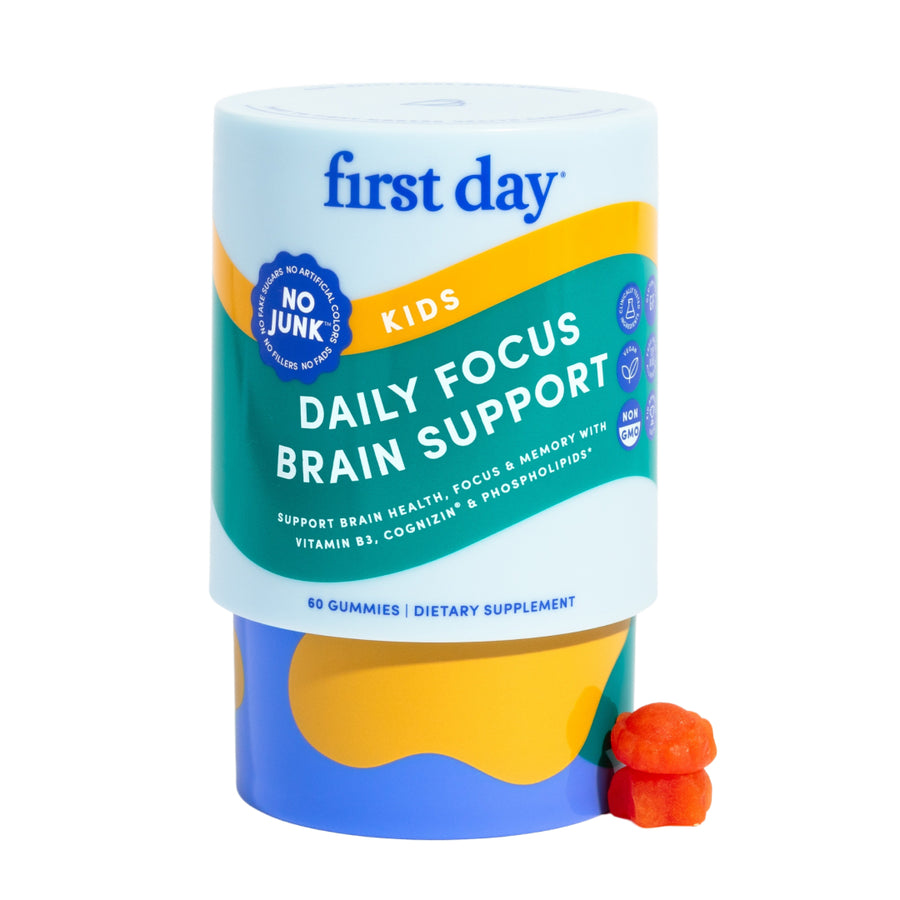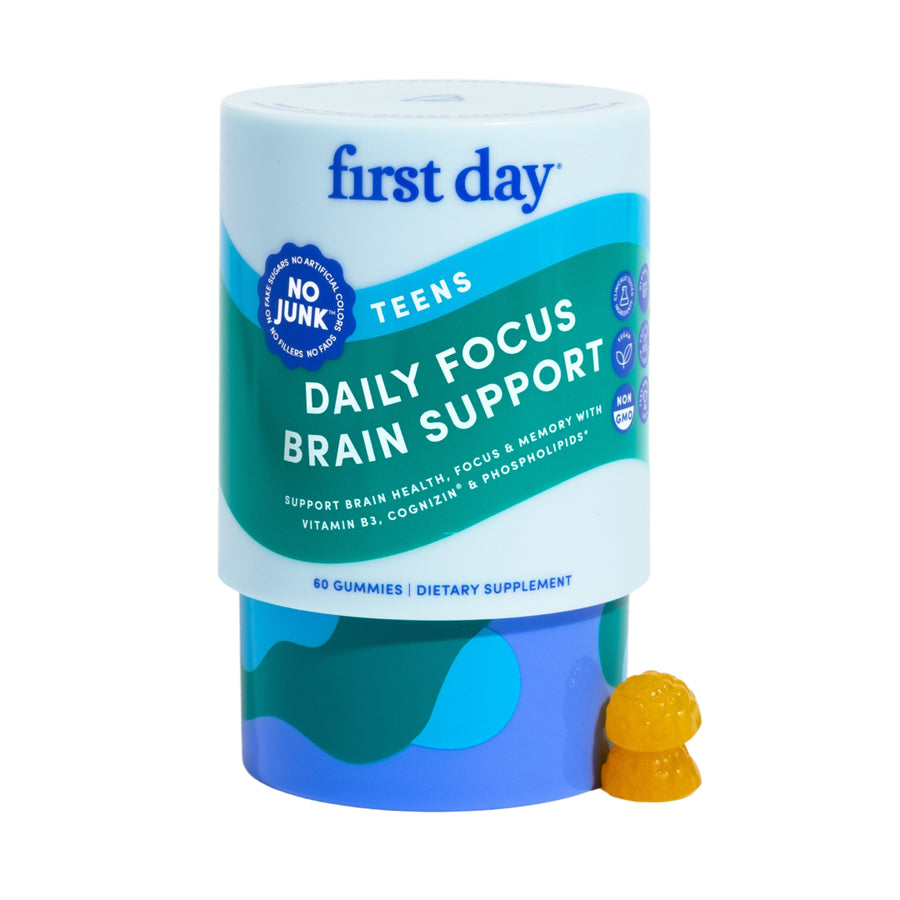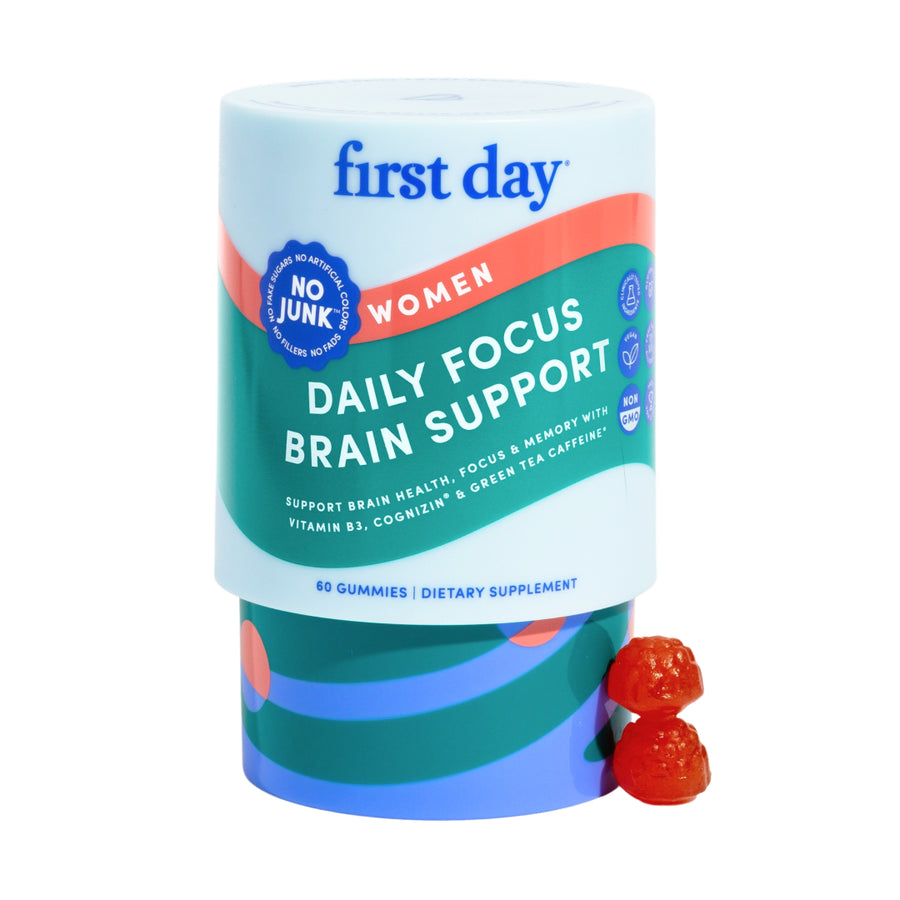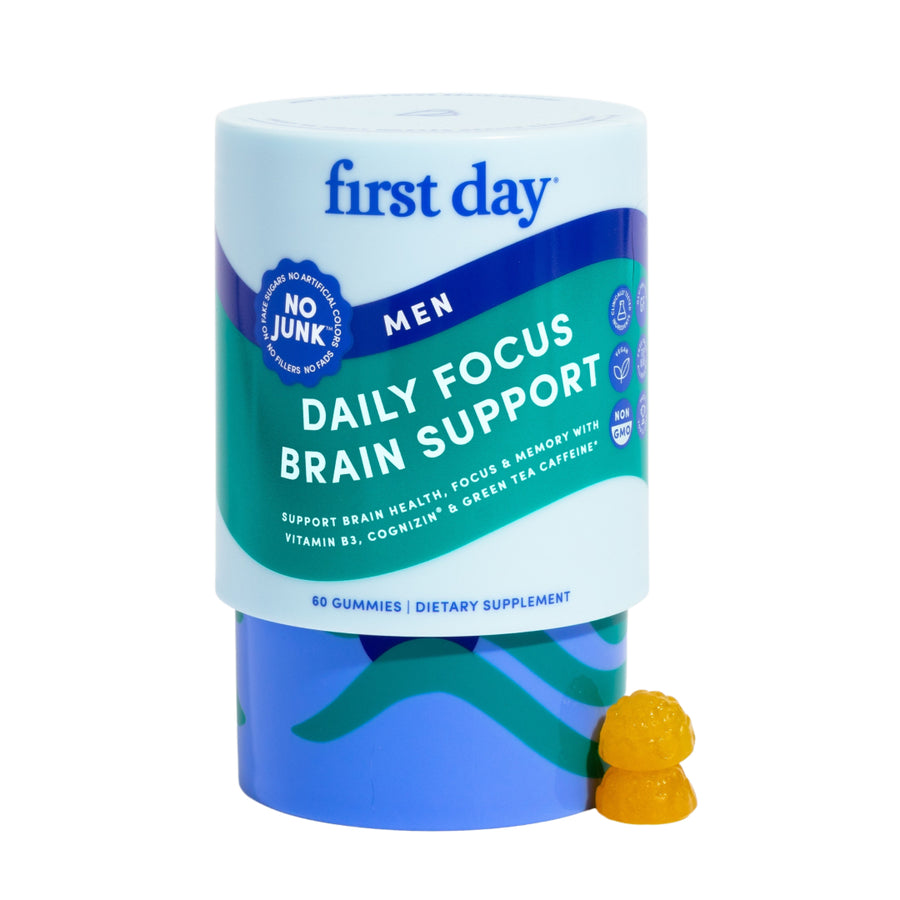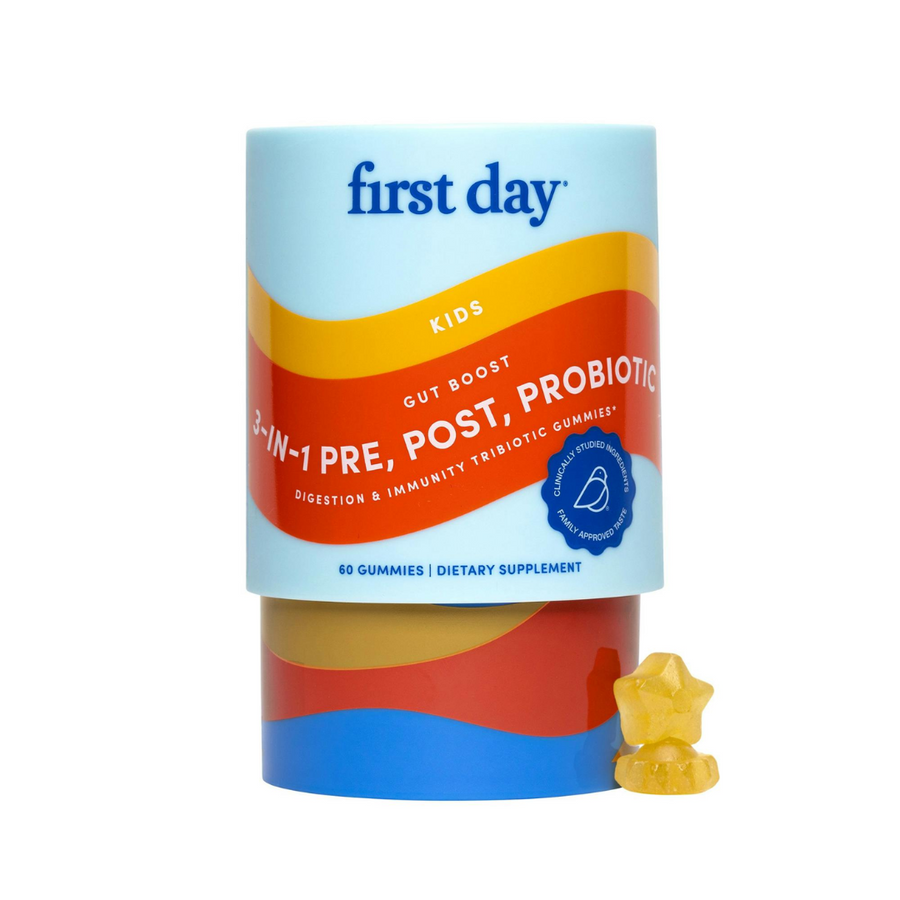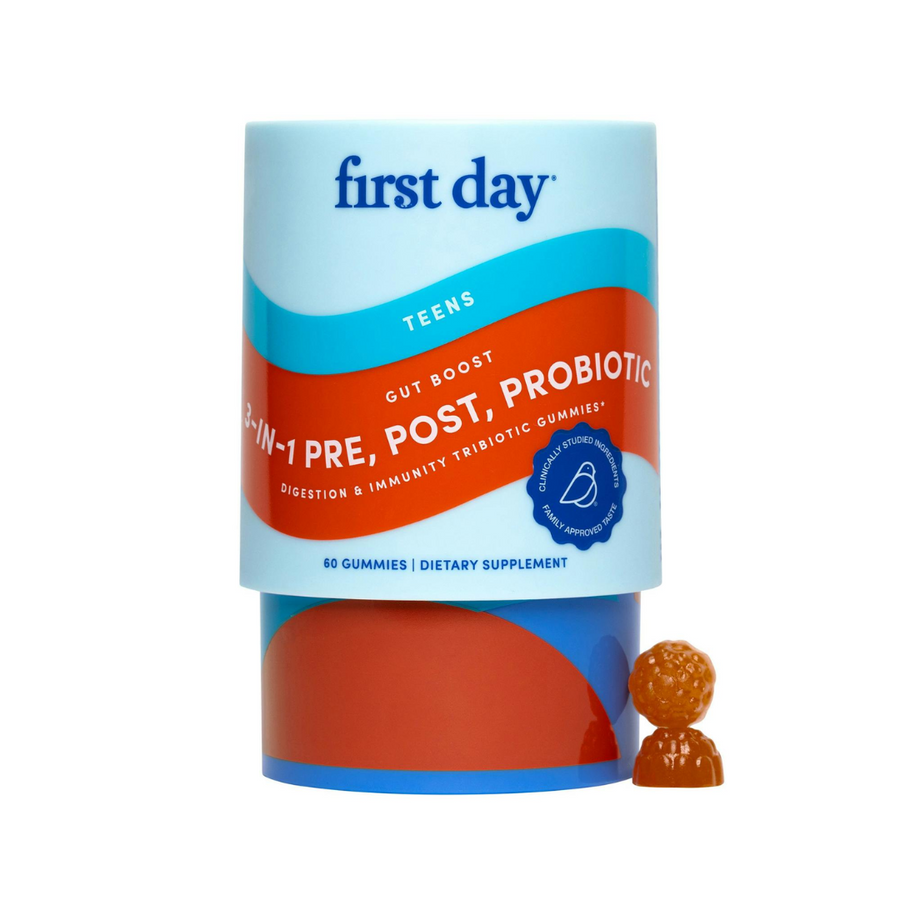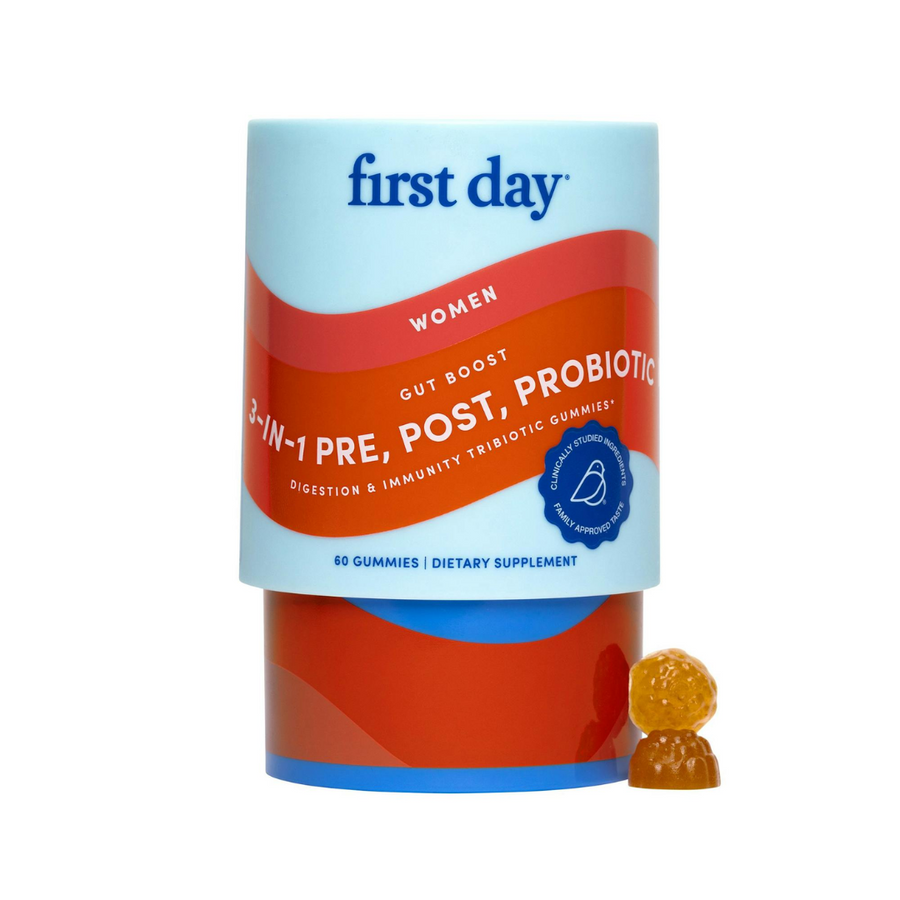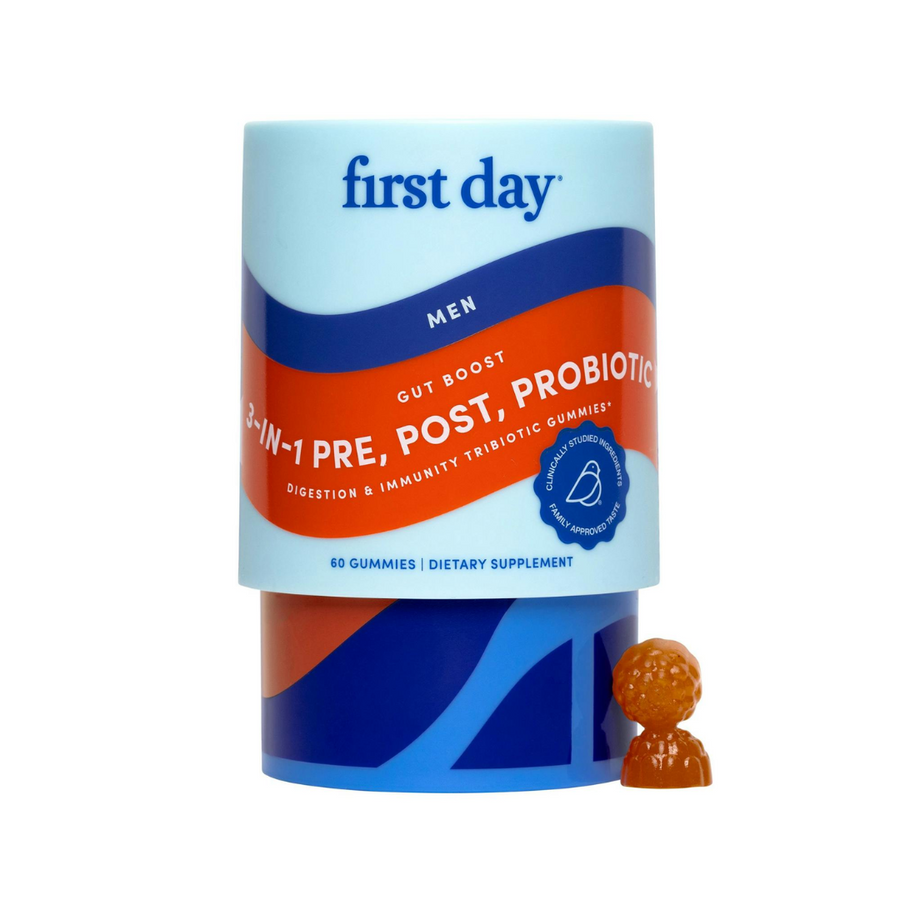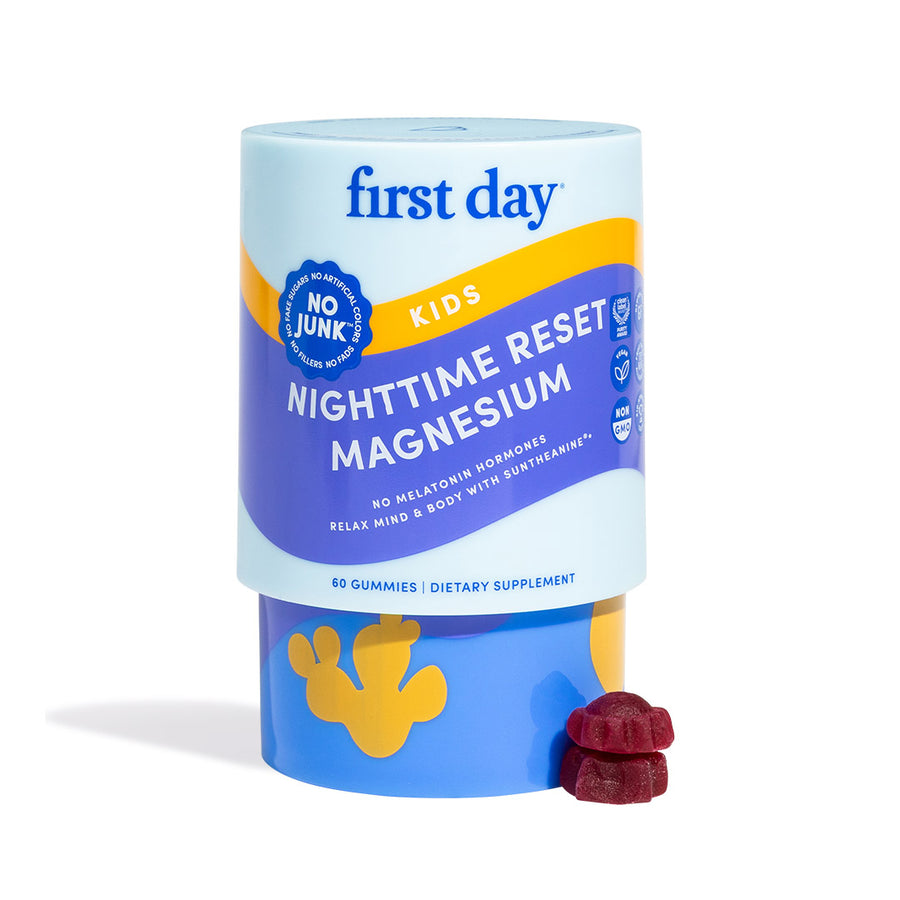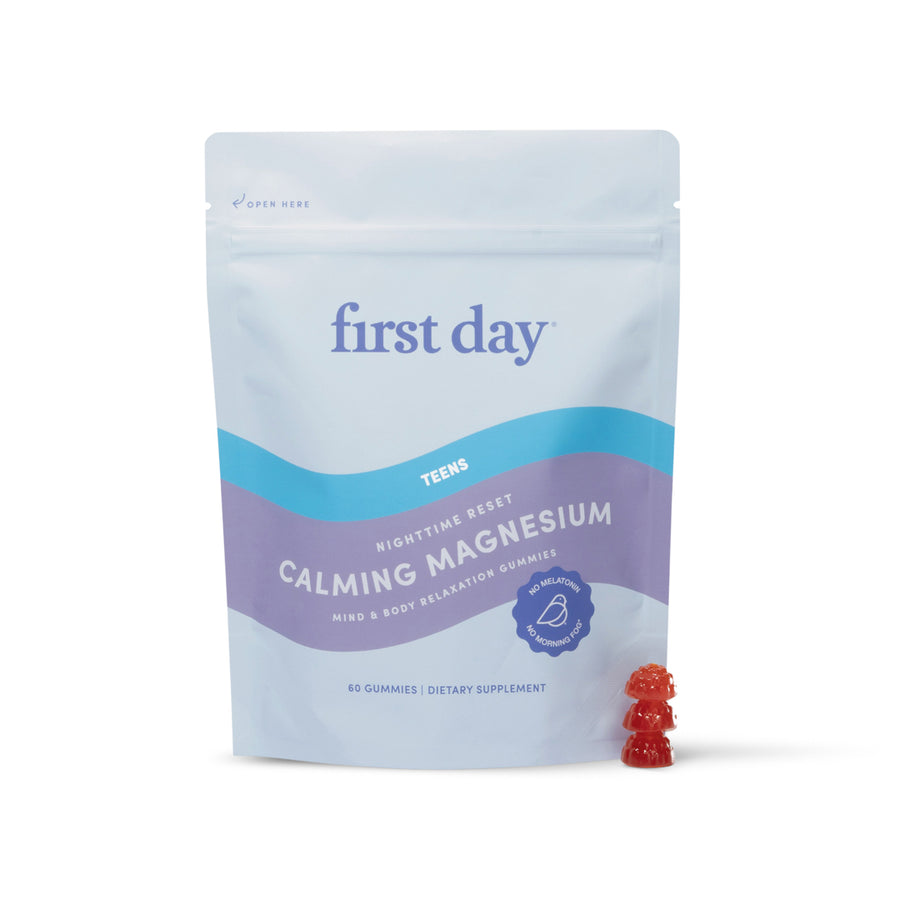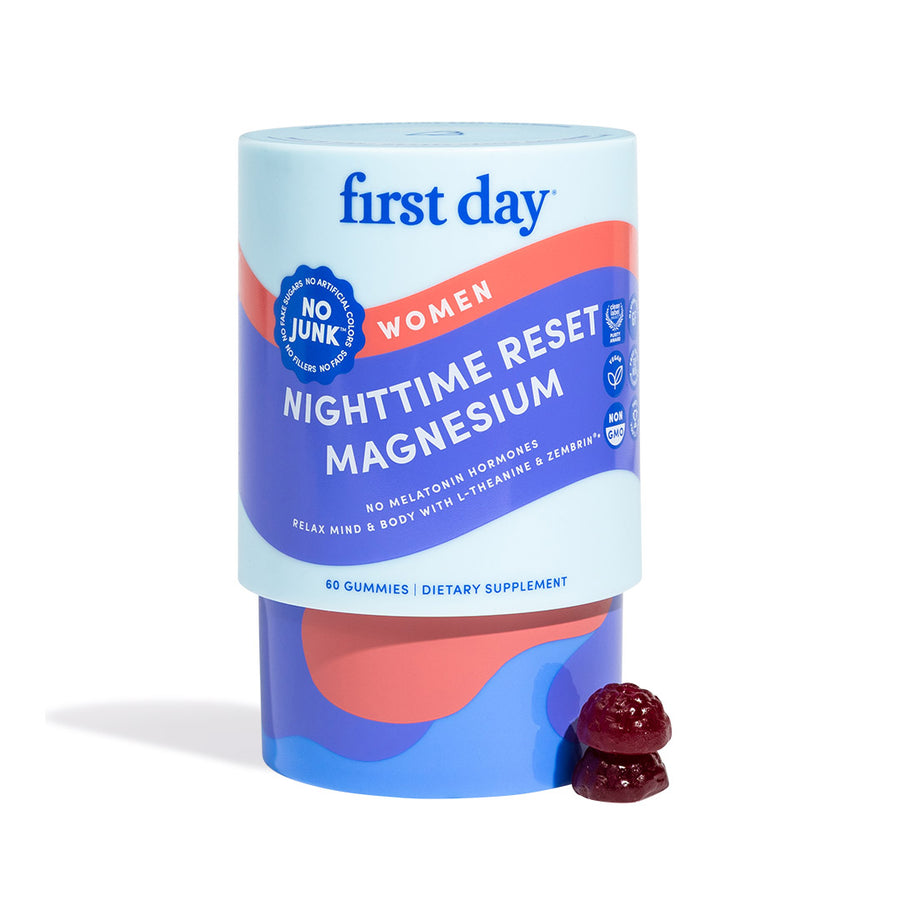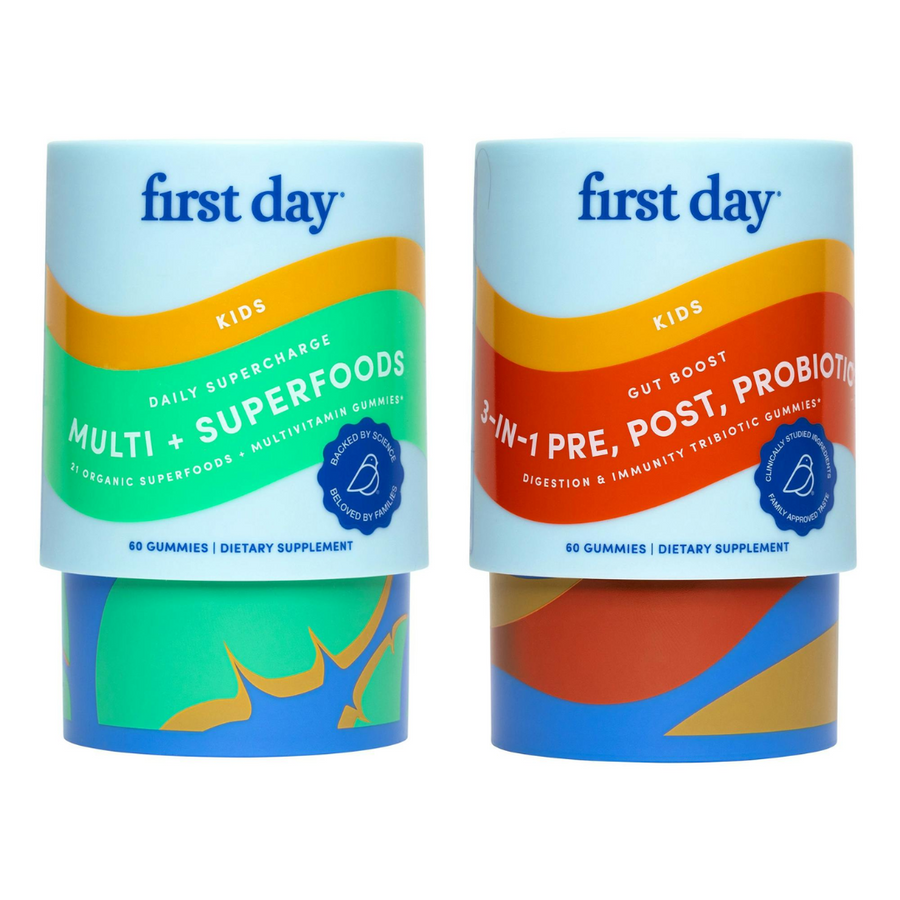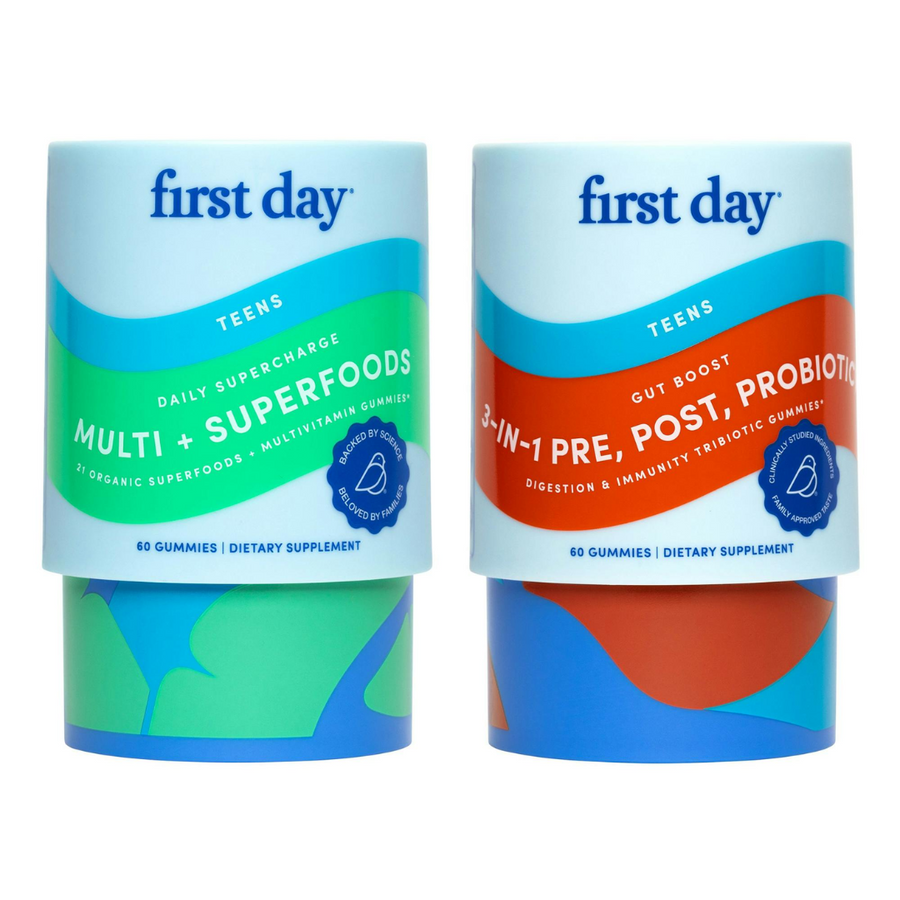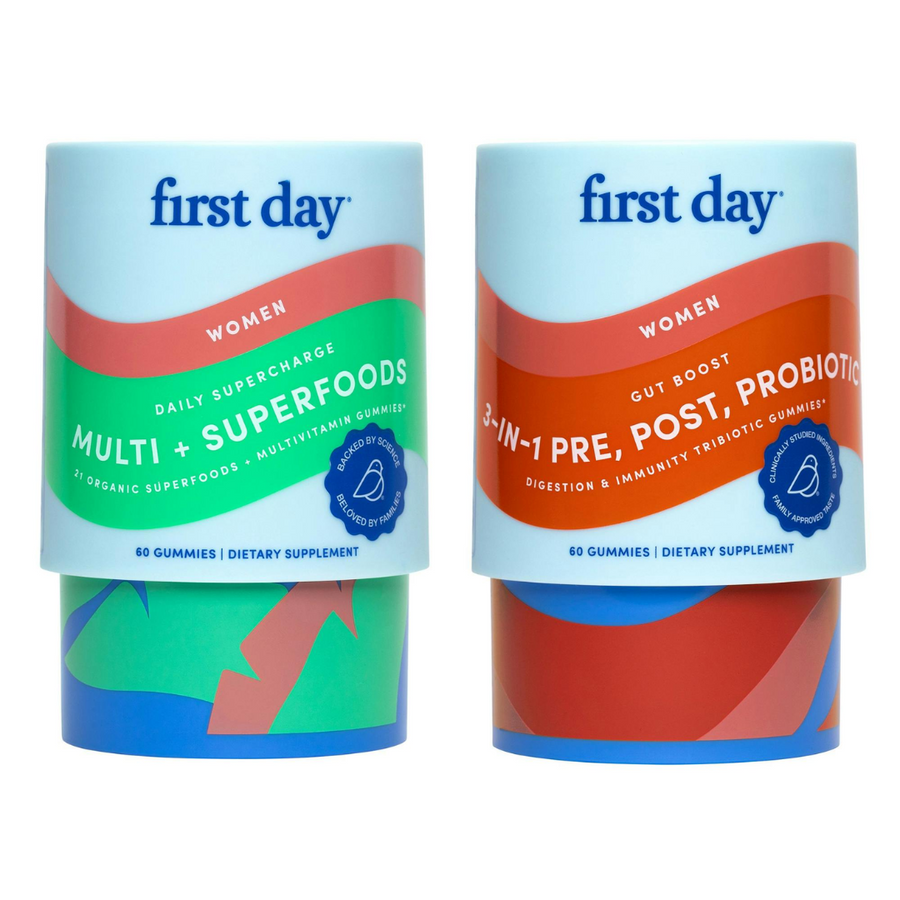We get it - sometimes navigating the health and wellness world is like being on a never-ending quest. On one hand, brands bombard us with claims, promises, and flashy packaging, leaving us feeling overwhelmed and confused. But on the other hand, our bodies do need the best to keep up and running. So naturally, we have to be on the lookout for that nutritional help to help us not only survive our day-to-day but dominate it. From juggling meetings and workouts to catching up with friends over brunch, we need the best multivitamins for women to power up our bodies and minds. So then... what is the best multivitamin for women? And why, you might ask, should we even care? Well, in this blog post, we're diving deep into what is the best multivitamin for women, because finding the right one can make all the difference in our health and happiness.
The Lowdown on Women's Essential Nutrients
Women have unique nutritional needs because, let's be real, our bodies are built a bit differently than men's. From puberty to pregnancy to menopause, we go through so many changes, and each stage needs different nutrients for overall health, hormone balance, and energy. Take calcium and vitamin D, for example. They're key for keeping our bones healthy, especially as we get older. And don't forget about folic acid or vitamin B9, it’s super important for anyone planning to start a family. Folic acid supplements or prenatal vitamins help prevent neural tube defects in babies, so it's a must-have in our daily vitamins.
What's in Your Awesome Multivitamin?
Gummies, pills, powders, oh my! The different forms are endless, and so are the ingredients. So, what is the best multivitamin for women when it comes to ingredients? Here's a breakdown of what you should keep an eye out for:
Age and Life Stage: Tailor Your Vitamins to You!
Just like grabbing the right outfit for the right occasion, choosing a multivitamin tailored to your age and life stage is super important. If you're in your 20s or 30s, you're probably focusing on staying energized for long workdays, intense workouts, and maybe even late-night hangouts. You'll need a multivitamin that can help support high energy levels and boost immunity. Look for ones packed with B vitamins, vitamin C, and vitamin A to keep you glowing and going strong.
Fast forward a bit to your 40s and beyond, and you'll find your body needs a different set of nutrients. Your metabolism might be slowing down, bone density could be declining, and you might face different hormonal changes. This is where calcium and vitamin D come in to support bone health, while vitamin E can help in preventing oxidative stress.
And let’s not forget menopause! Women going through this phase will benefit from vitamins that support hormonal balance and bone health, such as vitamins B6, B12, and D. Also, adding a bit of soy isoflavone or black cohosh in your diet can go a long way in managing those pesky hot flashes and mood swings.
Bottom line? Don't just grab any old multivitamin off the shelf. Think about what you need at this very moment in your life and choose accordingly.
For example, at First Day, our women's multivitamin is not just about meeting your needs today but about supporting your long-term wellness. It’s thoughtfully crafted to address the unique nutritional demands at various stages of womanhood, fostering overall health, hormone balance, and energy.
Ready to discover the best multivitamin for women that’s backed by science and tailored to your life stage?
Get Your First Day Women's Multivitamin Today & Feel Your Best Self!
Dietary Choices: What's in Your Diet, and What Should Be?
We all have different diets, whether you're a hardcore vegan, a devout carnivore, or somewhere in between. Whatever your dietary preference, it can significantly impact the type of multivitamin you need. For instance, if you're vegetarian or vegan, studies show you might be missing out on certain nutrients typically found in animal products, like vitamin B12. But don’t worry! There are multivitamins tailored just for you, rich in vitamin B12 to fill nutrient gaps or hidden hunger you may have.
On the flip side, if you're a meat lover but tend to skip your veggies (we see you), you might need more vitamin C, which is abundant in fruits and vegetables. (But this vitamin C deficiency or scurvy may only manifest after a long-term vitamin C deficient diet) Or maybe you’re the kind of person who loves munching on nuts and seeds but can't quite stomach dairy. If that's you, calcium and vitamin D supplements are your best pals.
No matter what your diet looks like, knowing what is the best multivitamin for women can help fill the gaps and make sure you're getting a good balance of nutrients. And remember, always consult with a healthcare professional to ensure you're making the best choice for your body’s unique needs.
How Multivitamins Can Rock Your World
Dragging ourselves through the day is not pretty. And so is spending the days fighting a cold. But hey, we’ve all been there! The good news is that dietary supplements can help prevent those scenarios. They're not magic pills since you will still need a balanced diet. But they do have impressive health benefits if taken consistently and correctly.
Here are just a few ways multivitamins can rock your world:
Feel the Buzz: Boosting Energy Levels and Vitality
Okay, let’s get real for a second. There’s nothing worse than that mid-afternoon slump where all you want to do is curl up under your desk and take a nap. Yawning during a Zoom call? No thanks! This is where your trusty multivitamin comes to the rescue. Many women's multivitamins are packed with B vitamins, which are like little spark plugs for your body. They help convert the food you eat into energy, so you’ll be humming along like a well-oiled machine.
What's more, B12 also plays a special role by helping to keep your nerves and blood cells in tip-top shape and can prevent that dragging feeling. Feeling sluggish and tired could be a sign you're missing out on this mighty vitamin, especially if you follow a vegetarian or vegan diet (remember?).
Stay Strong: Support for Immune Function and Overall Wellness
Nobody likes getting sick, especially when life is happening all around you. Our immune systems help us fight off the many pesky germs we encounter daily so we don't miss out on all the fun. But here's the thing: our immune system needs proper fuel to function at its best, and that’s where multivitamins come in.
Vitamin C is the reigning champion here. Remember how your mum always told you to drink orange juice when you were sick? She was onto something. Vitamin C ramps up your immune response, helping to fend off the cold or flu. If you’re not big on citrus fruits, a multivitamin with the recommended dose of vitamin C can keep you covered.
But wait, there’s more! Vitamin D3, often known as the sunshine vitamin, plays a crucial role too. With everyone spending more time indoors these days, it's no wonder many of us are falling short. Vitamin D can help regulate your immune cells by making sure they're fighting fit. So, unless you're basking in the sun every day, a multivitamin is a smart move.
And let’s not forget zinc. It doesn’t get the spotlight as much as C and D, but it’s just as important. Zinc keeps our immune cells functioning properly and may shorten the duration of colds. Less sick days are always a win in our book!
Cracking the Code on Supplement Labels
Just as you trust certain brands for clothes or tech gadgets, supplement quality matters too! Quality assurances can help you make informed choices.
Start by looking at the "Supplement Facts" panel—this is where you'll find the rundown of vitamins and minerals included, along with their amounts. Pay attention to the percentage of your Daily Value (%DV) listed next to each nutrient; this helps you see how much of your daily needs are being met with each serving, that is, your recommended daily allowances. This is based on your age, gender, and various life stages (like pregnancy or lactation) – so keep that in mind when choosing your multivitamin.
Next, make sure the label mentions thorough third-party testing. This will ensure that the product you are receiving is at peak potency and free from harmful contaminants. For example, at First Day, we test our product at least three times before packaging to ensure that the final product is of high quality, purity, and potency.
Lastly, don't forget about bioavailability. This refers to how well your body can absorb and use the key nutrients in a supplement. Some vitamins are more easily absorbed than others, so it's important to choose a multivitamin with high bioavailability. At First Day, we use only highly bioavailable forms of vitamins and minerals for optimal absorption.
Get Your First Day Women's Multivitamin Today & Feel Your Best Self!
So... What is the Best Multivitamin for Women? Drumroll Please...
You guessed it - it's the one that works best for you! We all have different bodies, lifestyles, and needs, so what might be the perfect multivitamin for your friend may not necessarily be the best choice for you. The key is to do some research and find a vitamin that matches your specific needs and preferences.
But, if we have to choose one to recommend, we'd go with a high-quality multivitamin like our First Day Women's Supercharge Vitamin. It's specifically formulated for women and designed to provide essential vitamins, minerals, and nutrients that support energy, immune health, and overall wellness. Plus, it's made with a high-quality organic food blend and tested for quality assurance.
Ready to feel your best?
Get Your First Day Women's Multivitamin Today & Feel Your Best Self!
References:
Calcium and vitamin D: Important for bone health. (2023, May 5). National Institute of Arthritis and Musculoskeletal and Skin Diseases. https://www.niams.nih.gov/health-topics/calcium-and-vitamin-d-important-bone-health
US Preventive Services Task Force. (2023). Folic Acid Supplementation to Prevent Neural Tube Defects: US Preventive Services Task Force Reaffirmation Recommendation Statement. JAMA, 330(5), 454–459. https://doi.org/10.1001/jama.2023.12876
Tardy, A.-L., Pouteau, E., Marquez, D., Yilmaz, C., & Scholey, A. (2020). Vitamins and minerals for energy, fatigue and cognition: A narrative review of the biochemical and clinical evidence. Nutrients, 12(1), 228. https://doi.org/10.3390/nu12010228
Office of Dietary Supplements - Dietary Supplements for Immune Function and Infectious Diseases. (2023, June 27). Ods.od.nih.gov. https://ods.od.nih.gov/factsheets/ImmuneFunction-HealthProfessional/#:~:text=Consuming%20adequate%20amounts%20of%20several
Cauley, J. A., Chlebowski, R. T., Wactawski-Wende, J., Robbins, J. A., Rodabough, R. J., Chen, Z., Johnson, K. C., O’Sullivan, M. J., Jackson, R. D., & Manson, J. E. (2013). Calcium Plus Vitamin D Supplementation and Health Outcomes Five Years After Active Intervention Ended: The Women’s Health Initiative. Journal of Women’s Health, 22(11), 915–929. https://doi.org/10.1089/jwh.2013.4270
Ahsan, M., & Mallick, A. K. (2017). The Effect of Soy Isoflavones on the Menopause Rating Scale Scoring in Perimenopausal and Postmenopausal Women: A Pilot Study. Journal of Clinical and Diagnostic Research : JCDR, 11(9), FC13–FC16. https://doi.org/10.7860/JCDR/2017/26034.10654
Office of Dietary Supplements - Black Cohosh. (2020, June 3). Nih.gov. https://ods.od.nih.gov/factsheets/BlackCohosh-HealthProfessional/
Niklewicz, A., Smith, A. D., Smith, A., Holzer, A., Klein, A., McCaddon, A., Molloy, A. M., Wolffenbuttel, B. H. R., Nexo, E., McNulty, H., Refsum, H., Gueant, J.-L., Dib, M.-J., Ward, M., Murphy, M., Green, R., Ahmadi, K. R., Hannibal, L., Warren, M. J., & Owen, P. J. (2022). The importance of vitamin B12 for individuals choosing plant-based diets. European Journal of Nutrition, 62(3). https://doi.org/10.1007/s00394-022-03025-4
Levin A., Greer K., (2000) Scurvy in an Unrepentant Carnivore https://cdn-uat.mdedge.com/files/s3fs-public/Document/September-2017/066010039.pdf
Tardy, A.-L., Pouteau, E., Marquez, D., Yilmaz, C., & Scholey, A. (2020). Vitamins and minerals for energy, fatigue and cognition: A narrative review of the biochemical and clinical evidence. Nutrients, 12(1), 228. https://doi.org/10.3390/nu12010228
O’Leary, F., & Samman, S. (2010). Vitamin B12 in Health and Disease. Nutrients, 2(3), 299–316. https://doi.org/10.3390/nu2030299
Moore, A., & Khanna, D. (2023). The Role of Vitamin C in Human Immunity and Its Treatment Potential Against COVID-19: A Review Article. Cureus, 15(1). https://doi.org/10.7759/cureus.33740
Mourad Aribi, Franck, & Chafia Touil-Boukoffa. (2023). Editorial: The role of vitamin D as an immunomodulator. Frontiers in Immunology, 14. https://doi.org/10.3389/fimmu.2023.118663
Shankar, A. H., & Prasad, A. S. (1998). Zinc and immune function: the biological basis of altered resistance to infection. The American Journal of Clinical Nutrition, 68(2), 447S463S. https://doi.org/10.1093/ajcn/68.2.447s
Rao, G., & Rowland, K. (2011). PURLs: Zinc for the common cold--not if, but when. The Journal of Family Practice, 60(11), 669–671. https://www.ncbi.nlm.nih.gov/pmc/articles/PMC3273967/
National Institute of Health. (2019). Nutrient Recommendations and Databases. Ods.od.nih.gov; National Institutes of Health. https://ods.od.nih.gov/HealthInformation/nutrientrecommendations.aspx

